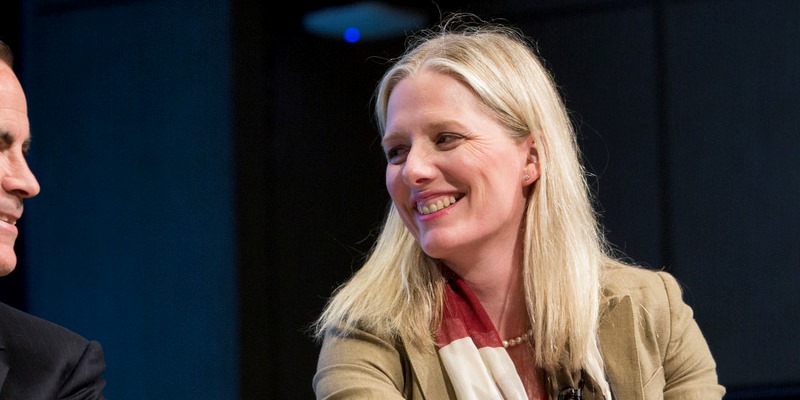Minister McKenna wrong on carbon pricing and growth in Ontario

This week, the Trudeau government announced plans to impose a carbon tax on provinces (including Ontario) whose governments are not currently planning to implement a tax themselves.
Prior to the announcement, Catherine McKenna (pictured above), federal minister of Environment and Climate Change, tweeted her criticism of the Ford government in Ontario for being one of the provincial governments not implementing its own carbon price.
Specifically, she blasted the Ford government’s decision to scrap the cap-and-trade program that being implemented by former premier Kathleen Wynne (which would have made a federal tax in Ontario unnecessary under Ottawa’s rules), claiming the decision would hurt Ontario’s economic growth prospects.
Minister McKenna told the Ford government “if you don’t have a plan to fight climate change, you don’t have a plan to grow the economy.” In short, Minister McKenna suggests that taxing carbon emissions helps the economy grow and, in fact, that doing so is essential for a viable economic strategy.
The minister is simply factually incorrect on this point. There’s no compelling evidence that carbon taxes, cap-and-trade or similar policies would help accelerate economic growth in Ontario, let alone that such policies are necessary for a successful growth strategy. In fact, the best available evidence suggests, holding all else equal, that carbon pricing would slow the rate of economic growth—not speed it up.
Consider a recent report from Canada’s Ecofiscal Commission, one of the leading proponents of carbon pricing, which finds that no matter how you slice it, a carbon price will slow the rate of economic growth relative to no new action on emissions. According to the same report, this slowdown could be substantially mitigated by choosing the most economically-efficient way to recycle the revenue from carbon pricing (i.e. cut corporate taxes), but the directional effect is still downward.
What’s more, historical evidence from Canada suggests governments are unlikely to actually employ the most economically-efficient revenue recycling options, choosing instead to use the money to issue rebates that don’t influence economic incentives and/or to fund “green” initiatives.
Indeed, the Trudeau government’s plan for revenue recycling announced just week relies on rebates to households instead of reductions in tax rates, which would do more to reduce the economic costs of carbon pricing. But make no mistake—even with the very best revenue recycling options, the preponderance of evidence suggests pricing carbon in Ontario would still negatively affect economic growth.
None of this is to say moderate carbon pricing is inconsistent with economic growth in Ontario, but the minister’s suggestion—that it’s necessary for robust growth—is simply wrong. Ontario’s economy can grow with or without a price on carbon, and the best evidence suggests it will grow faster without one.
The arguments for and against carbon pricing should be based on facts and data—not hyperbolic and flatly incorrect claims on Twitter. Given Minister McKenna’s position and stature, and the weight attached by so many to her words, she should correct the record on this point.
Author:
Subscribe to the Fraser Institute
Get the latest news from the Fraser Institute on the latest research studies, news and events.

